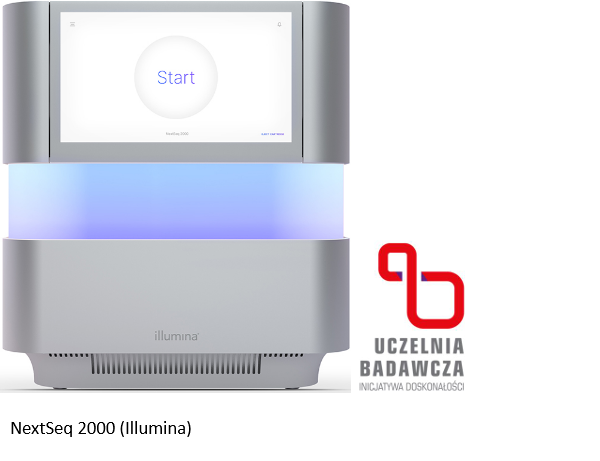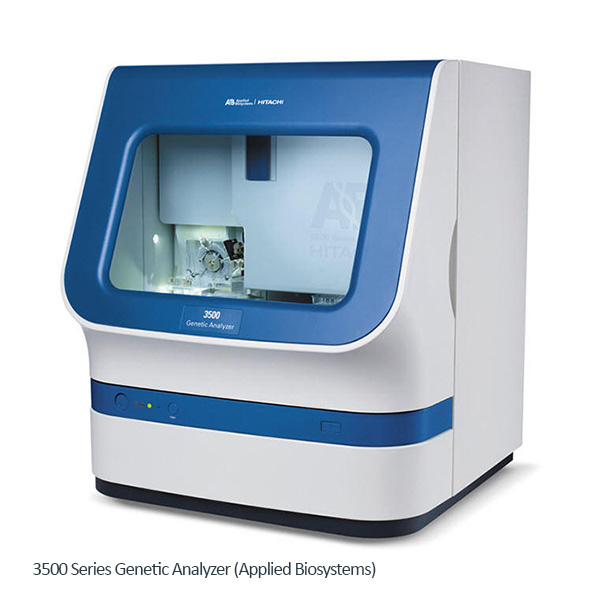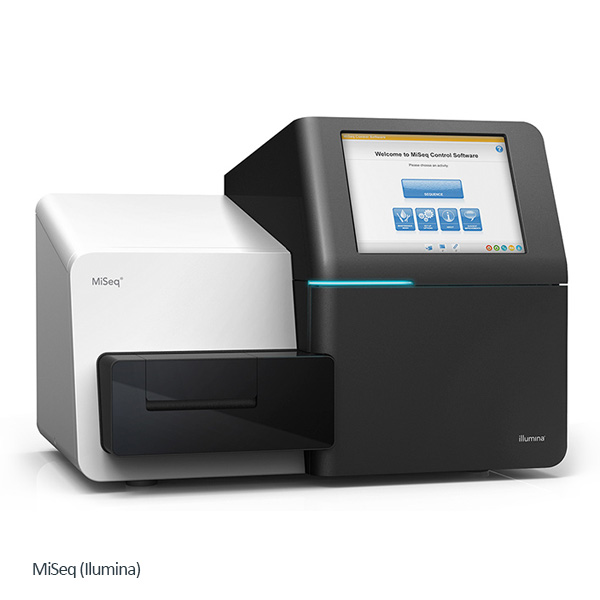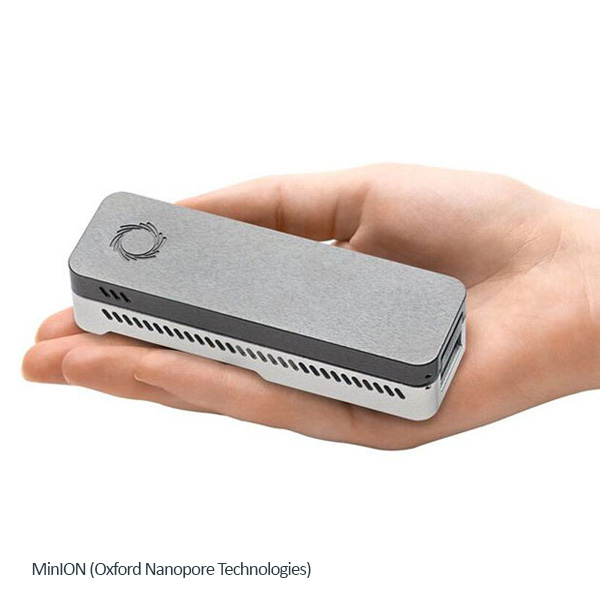The Genomics Core Facility provides a variety of services in the area of DNA and RNA analysis utilizing next-generation sequencing (NGS) and capillary electrophoresis (CE) methods. Our offer is aimed at researchers from Jagiellonian University and external users (both from academia and industry).
The Genomics Core Facility provides a variety of services in the area of DNA and RNA analysis utilizing next-generation sequencing (NGS) and capillary electrophoresis (CE) methods. Our offer is aimed at researchers from Jagiellonian University and external users (both from academia and industry).
- whole transcriptome sequencing
- targeted transcriptome sequencing (available for human and mouse samples)
- miRNA sequencing
- targeted DNA sequencing (SNP/gene panels, amplicon)
- small genome sequencing
- metagenome sequencing
- other
- cell line authentication (STR profiling)
- STR analysis
- SNaPshot minisequencing
- DNA/RNA fragment analysis on 2100 Bioanalyzer
- DNA/RNA concentration measurement on Qubit
- DNA/RNA extraction (on request)
Analyze the sequence of all coding and noncoding RNAs present in a sample at a given time after removal of ribosomal RNA or poly(A) selection. RNA-Seq enables determination of the relative abundance of identified RNA molecules and is therefore a perfect approach for both discovery and gene expression analysis. Unlike gene expression microarrays, RNA-Seq does not require species- or transcript-specific probes; hence, it allows detection of novel transcripts, gene fusions, single nucleotide variants, indels, and splice variants. Moreover, it delivers increased specificity and sensitivity while maintaining the strand orientation, which may aid, for instance, in understanding transcriptional regulation.
Input requirements:
>10 μg of high-quality total RNA or >20 ng of poly(A) RNA or >25 ng of rRNA-depleted RNA
The perfect alternative to gene expression microarrays for fast and cost-effective transcriptome sequencing. The Ion AmpliSeq Transcriptome Gene Expression panels, covering >95% of human/mouse RefSeq genes (nearly 21,000 RNA targets), provide an attractive solution for researchers interested in gene-level quantification and differential gene expression analysis. Small amplicon designs enable the use of panels with RNA isolated from fixed tissues, such as formalin-fixed paraffin embedded (FFPE) samples, and do not require poly(A) selection or rRNA depletion.
Input requirements:
50-100 ng of total RNA (preferably DNase-treated)
We perform miRNA sequencing based on Qiagen’s QIAseq miRNA Library Prep kit, which enables enhanced differential expression analysis using integrated Unique Molecular Indices (UMIs) and novel discovery of miRNA from cells, tissues and biofluids. The kit is optimized to prepare sequencing libraries from miRNA and other similarly sized RNAs with a 3’ hydroxyl group and a 5’ phosphate group, such as piRNA. Furthermore, the kit is designed to minimize the presence of hY4 Y RNA, which is often observed at high levels in serum and plasma samples.
Free-of-charge primary and secondary data analysis solutions are available for rapid and robust UMI counting, miRNA mapping, and differential expression analysis.
Input requirements:
>1 ng of total RNA (containing miRNA fraction)
Designed to match the requirements of any targeted sequencing research application, Ion AmpliSeq offers a wide range of ready-to-use and fully customizable panels. Regardless of the sample type (gDNA, cfDNA, FFPE) or species you work with, it provides a powerful tool for the detection of various types of mutation within your regions of interest.
If your region of interest is small and can be covered with one or a few amplicons, we offer PCR product sequencing.
Input requirements:
>1 ng of DNA for the Ion AmpliSeq panel
>100 ng of purified PCR product(s)
We offer sequencing of whole small genomes (bacterial, viral, etc) utilizing short reads or long reads, according to your needs. Short read sequencing on MiSeq (Illumina) ensures the best possible quality of the data, while long reads generated with MinION (ONT) are better able to span structural variants and repeats, or even obtain the sequence of whole genome in a single read, which greatly facilitates subsequent in silico genome assembly.
Input requirements:
>1 ng of high-quality DNA for short read sequencing on MiSeq
>400 ng of high-quality DNA for long read sequencing on MinION
Whole metagenome sequencing is a powerful tool that provides insight into the biodiversity and function of a community. Unlike targeted approaches, such as 16S rRNA sequencing, it gives information on the entire genomic content present in a sample.
Depending on your research goals, we offer various options for metagenome analysis:
- deep whole metagenome sequencing on the Ion Proton platform (up to 100 M reads)
input requirement: >100 ng of high-quality DNA
- sequencing of low DNA quantity samples on MiSeq (up to 25 M reads)
input requirement: 1 ng of high quality DNA
- long read sequencing on MinION
input requirement: >400 ng of high-quality DNA
Apart from the above-mentioned standard NGS services, we can prepare on request other kinds of libraries or sequence ready libraries. If you do not find an approach suitable for your research problem, feel free to contact us, tell us about your project, and we will do our best to find a solution that will be tailored to your needs.
Authentication of cell lines used in experiments is critical to conducting valid and reproducible research and is often required by scientific journals as a prerequisite for acceptance of manuscripts. Cell line authentication is an assay based on STR profiling that verifies the identity and purity of a cell line. The service includes STR amplification with the GenePrint 10 System (Promega), analysis of the STR profile for cross-contamination, and comparison of the obtained STR profile with human cell lines databases to confirm cell line identity.
Input requirement:
>1 ng of DNA or cell pellet (~106 cells)
Microsatellites (short tandem repeats) present a large selection of highly informative markers, therefore, their analysis is a particularly useful tool in genetic linkage and association studies, but is also often employed in identifying individual organisms (e.g. human identification). The assay includes PCR amplification of microsatellite loci using fluorescently labelled primers. The resulting PCR products are then analyzed by capillary electrophoresis to separate alleles by size.
Minisequencing is a common method with applications not only in genomic research but also in forensics, especially useful for degraded or low-copy-number DNA analysis. The SNaPshot Multiplex System allows investigation of up to 30 SNP markers simultaneously by using single-base extension technique. In principle, the user-defined primer is extended with the dye-labelled ddNTP, the products are then separated through capillary electrophoresis, and after fluorescence detection, alleles of a single marker can be identified. Sensitive allele frequency detection (5%) and multiplexing capability make SNaPshot a perfect solution for SNP validation.
Our laboratories are equipped with:
NGS platforms:
NextSeq 2000 (Illumina)*
Ion Proton (Thermo Fisher Scientific)
MiSeq (Illumina)
MinION (Oxford Nanopore Technologies)
CE system: 3500 Series Genetic Analyzer (Applied Biosystems)
qPCR instrument: QuantStudio 12K flex (Applied Biosystems)
DNA/RNA evaluation: Qubit fluorometer (Invitrogen), 2100 Bioanalyzer (Agilent), Nanodrop spectrophotometer (Thermo Fisher Scientific)
Other: Precellys 24 Tissue Homogenizer (Bertin Instruments), Bioruptor Pico (Diagenode), Pippin Prep (Sage Science)
* The purchase of this equipment has been supported by a grant from the Priority Research Area BioS under the Strategic Programme Excellence Initiative at Jagiellonian University.




mgr inż. Agata Jarosz
Kierownik Genomics Core Facility
Email: agata.1.jarosz@uj.edu.pl
Tel: 12 664 61 13
Kinga Herda, MSc
Laboratory Technician
Email: kinga.herda@uj.edu.pl
Tel: 12 664 61 13
mgr Adrianna Klajmon
Technik laboratoryjny
Email: adrianna.klajmon@uj.edu.pl
Tel: 12 664 61 13
Agata Muszyńska, PhD
Bioinformatician
Email: a.muszynska@uj.edu.pl

